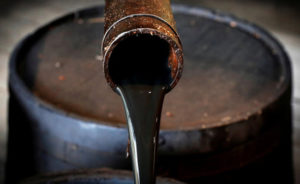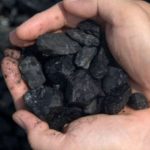25 interesting facts about oil
 When mankind learned to extract and process oil, civilization made a huge leap forward. Of course, now the search for alternative sources of energy is in full swing, but so far it is precisely oil that ensures the existence of a global world economy. And the matter is not only in fuel – a lot of other things are also made from it.
When mankind learned to extract and process oil, civilization made a huge leap forward. Of course, now the search for alternative sources of energy is in full swing, but so far it is precisely oil that ensures the existence of a global world economy. And the matter is not only in fuel – a lot of other things are also made from it.
If oil spills, it always leads to an environmental disaster of one scale or another. Just four drops is enough to spoil a hundred liters of clean water.
Russia, the USA and Saudi Arabia produce the most oil in the world. And at the beginning of the last century, more than half of the world’s mining of this mineral was in the Russian Empire.
A barrel of oil is equal to 158987 liters.
The ancient Egyptians used oil as one of the ingredients for the composition with which embalmed dead pharaohs.
Sometimes oil itself comes to the surface. So, even about 2300 ago in ancient China, people mined it using bamboo trunks as pipes for pumping it.
The idea of a pipeline for pumping oil came to Europe thanks to the famous Dmitry Mendeleev, who invented the pipeline in 1863.
Green energy advocates advocate the widespread use of solar panels. However, not all of them are aware that petroleum resins are used to make these panels.
In addition to gasoline and diesel, oil is used in the production of plastics, synthetic fabrics, paraffin, asphalt, tar and many other things.
The cost of oil production depends on the field and the technologies used. For example, in Saudi Arabia, the production of one barrel costs only two dollars, plus or minus.
A day on Earth, an amount of oil is consumed equivalent to what was formed in the bowels of our planet over a millennium.
The peak of oil production was reached at the beginning of this century, and since then the world level of its production has been gradually decreasing from year to year.
If the price of oil rises in the market, everything rises in price, because the fuel received from it is needed for the production and transportation of all other consumer products.
In Azerbaijan, in the city of Naftalan, you can take an oil bath. Local hospitals claim that they help get rid of arthritis.
The invention of kerosene, which is obtained from oil, saved the whales from extinction. Previously, they were actively hunted because of the fat, which was used as fuel for lighting, but kerosene turned out to be much more convenient in this regard.
It was kerosene that was the ultimate goal of oil production long before gasoline replaced it.
Oil and coal are formed from the same substances, but under different conditions. Lomonosov was the first to express this idea, and subsequently it was confirmed.
Most deposits occur at a depth of up to three kilometers, but deposits are also found at twice as deep depths.
In the bowels of the earth there are no reservoirs of pure oil. Deposits are rocks mixed with oil and gas.
Most often, oil is black, but it is colorless and even green.
Scientists believe that about 90% of the materials from which oil has been formed over millions of years comes from phytoplankton and not from dinosaurs and other extinct animals.
Despite the fact that it is liquid, oil still refers to minerals.
As in coal, in oil the bulk is carbon.
About 70% of all known deposits are located in the Persian Gulf and its environs.
The prevailing theory is that oil was formed from organics, which was exposed to pressure and high temperatures for millions of years. But some scientists question her.
In Chinese, “oil” literally means “mountain oil”.



























